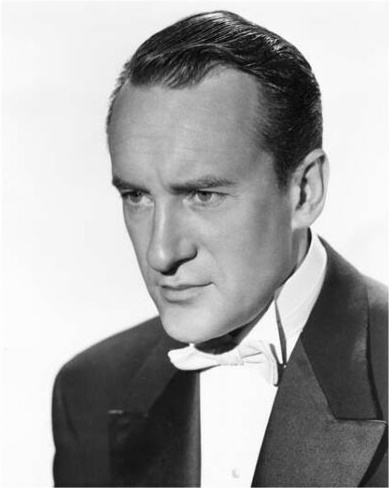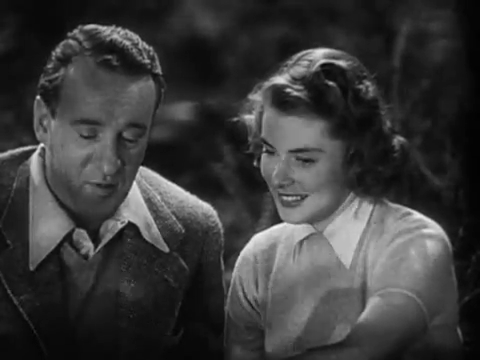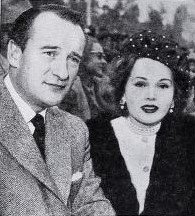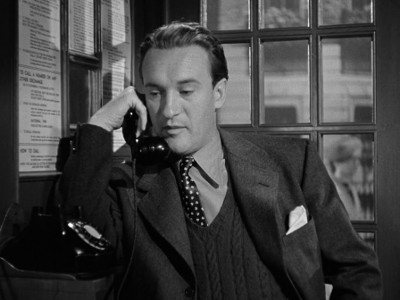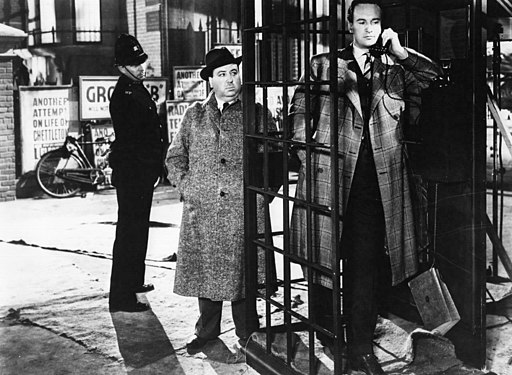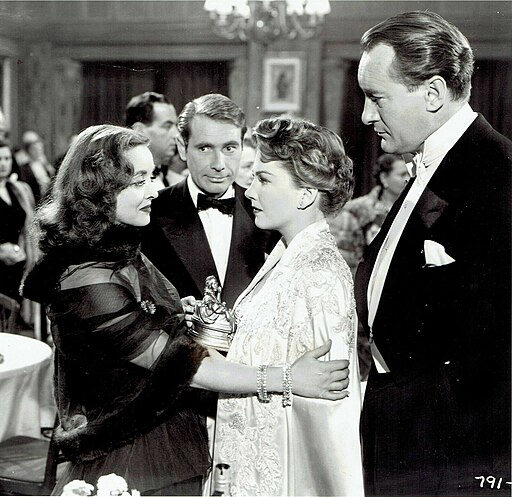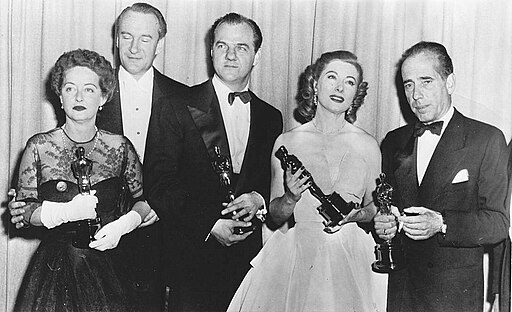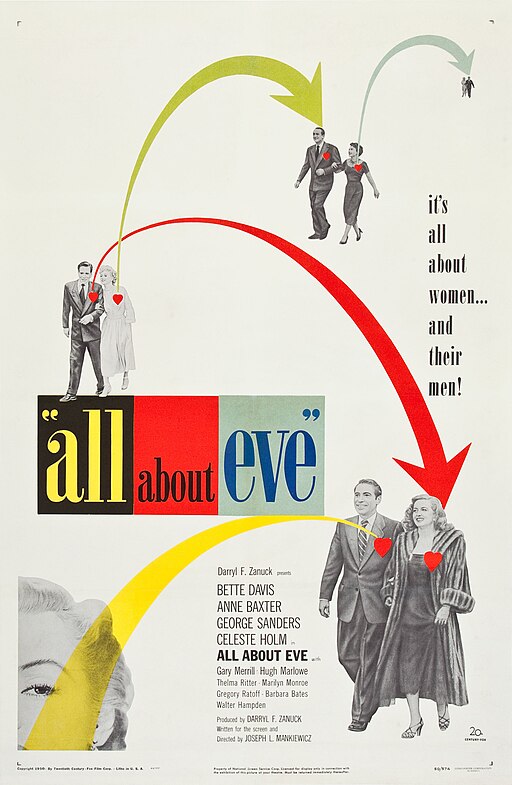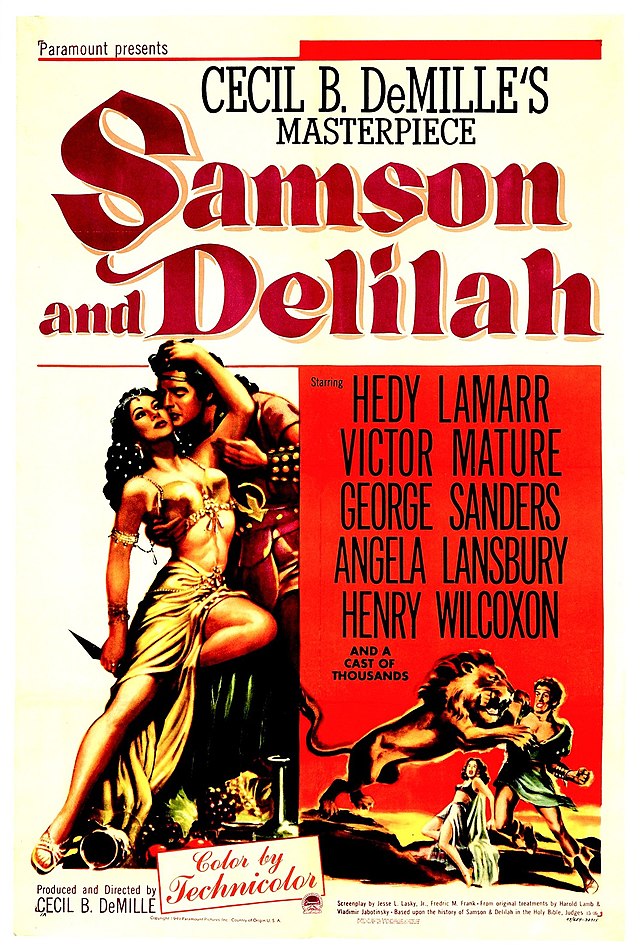George Sanders
back| Full Name | George Henry Sanders |
| Stage Name | George Sanders |
| Born | July 3, 1906 |
| Birthplace | Saint Petersburg, Russian Empire |
| Died | April 25, 1972 |
| Buried | Initially interred in the cemetery of the Parish of the Ascension in Churriana, a small village near Málaga, Spain. Later, his remains were cremated and his ashes scattered in the English Channel. |
| Married to | Susan Larson (1940–1949) - Zsa Zsa Gabor (1949–1954) - Benita Hume (1959–1967) - Magda Gabor (1970–1971) |
| Children | None |
| Notable films | Rebecca (1940) - All About Eve (1950) - The Picture of Dorian Gray (1945) - Foreign Correspondent (1940) - The Jungle Book (1942) - The Ghost and Mrs. Muir (1947) |
George Sanders
The King of Sleaze
Sanders' career spanned over three decades, during which he appeared in more than 100 films, television productions, and radio shows. His aristocratic bearing, effortlessly delivered lines, and distinctive voice made him an iconic figure in classic cinema.
Despite his professional success, Sanders struggled with personal issues and depression, which ultimately led to his suicide in 1972.
Related
George Sanders (1906 – 1972)
Biography and Analysis of his Movie Career
George Sanders, an emblem of sophistication and wit in classic cinema, carved an indelible niche for himself in Hollywood's golden era. Born on July 3, 1906, in Saint Petersburg, Russian Empire, to British parents, Sanders' early life was marked by the comforts of an affluent upbringing and the instability brought about by the Russian Revolution. This tumultuous beginning necessitated his family's move to England, where Sanders would spend the majority of his formative years.
Sanders' academic journey led him to Brighton College, and although he briefly worked in textile sales, his true calling lay far from the world of commerce. Possessing a deep, mellifluous voice and an undeniable charm, Sanders ventured into acting, a decision that would eventually immortalize him in the annals of film history.
His cinematic debut came in 1929, but it was the 1930s that saw Sanders moving to Hollywood, where he quickly became typecast as the quintessential "English cad," a role that he would both cherish and lament. His breakthrough came with Alfred Hitchcock's "Rebecca" (1940), where he played the rakish Jack Favell. This role was emblematic of his on-screen persona: suave, sophisticated, and with a moral ambiguity that made his characters fascinatingly complex.
Sanders' career apex was arguably his Oscar-winning performance in "All About Eve" (1950), where he played the acerbic theatre critic Addison DeWitt. His portrayal was a masterclass in screen villainy, blending cynicism with charm in a manner only Sanders could achieve. Despite his success in villainous roles, Sanders possessed a versatile talent, evident in his performances in "The Picture of Dorian Gray" (1945) and "The Ghost and Mrs. Muir" (1947), among others.
George Sanders, often remembered for his quintessential roles as the urbane villain or the sophisticated cad, earned him the unofficial nickname "The King of Sleaze" within certain circles, albeit in a somewhat affectionate or ironic sense. This moniker reflects his unparalleled ability to portray characters that were simultaneously charming and morally ambiguous, often with a hint of malice lurking beneath their polished exterior.
Off-screen, Sanders' life was as complex and intriguing as his film roles. He was married four times, most notably to Zsa Zsa Gabor, with whom he shared a tumultuous relationship. Despite these marriages, Sanders was a solitary figure, famously quipping in his autobiography, "Dear Rogue," that he was "a dedicated bachelor who happened to be married a few times."
Sanders had a passion for music and literature, hobbies that offered him solace from the pressures of his profession. He was an accomplished singer and songwriter, releasing an album of romantic ballads and even penning the lyrics to the song "Such Is My Love." Yet, despite these creative outlets, Sanders battled with depression and loneliness throughout his life.
His final years were marked by a decline in both health and happiness. Sanders' career had slowed, and he found little solace in retirement. On April 25, 1972, George Sanders was found dead in a hotel room in Castelldefels, Spain, having overdosed on barbiturates. His suicide note spoke of a weariness with life, stating, "Dear World, I am leaving because I am bored. I feel I have lived long enough. I am leaving you with your worries in this sweet cesspool. Good luck."
Short Video Bio on George Sanders:
Notable Movies Starring George Sanders:
1930s
- "The Man Who Could Work Miracles" (1936): Sanders had a supporting role in this fantasy film about a man who, granted the power to perform miracles, tries to use it for good, with unexpected consequences.
1940s
- "Rebecca" (1940): In this psychological thriller directed by Alfred Hitchcock, Sanders plays Jack Favell, the charming but untrustworthy cousin of the late Rebecca de Winter, whose presence adds to the mystery and tension surrounding her death.
- "Foreign Correspondent" (1940): Sanders appears as ffolliott (his character insisted on the lowercase spelling of his name), a witty and urbane reporter in this espionage thriller directed by Alfred Hitchcock.
- "The Saint Strikes Back" (1939), "The Saint in London" (1939), "The Saint's Double Trouble" (1940), "The Saint Takes Over" (1940), "The Saint in Palm Springs" (1941): Sanders starred as Simon Templar, aka The Saint, in this series of detective films based on Leslie Charteris' novels, portraying a suave and sophisticated detective.
- "The Picture of Dorian Gray" (1945): Sanders plays Lord Henry Wotton, whose cynical world view influences Dorian Gray to pursue a life of hedonism and eternal youth, with dire consequences.
- "The Ghost and Mrs. Muir" (1947): In this romantic fantasy, Sanders plays a supporting role as Miles Fairley, a charming but ultimately untrustworthy suitor to Gene Tierney's character.
1950s
- "All About Eve" (1950): Sanders delivers an Oscar-winning performance as Addison DeWitt, a theater critic who manipulates the lives of two actresses (played by Bette Davis and Anne Baxter) in this backstage drama.
- "Ivanhoe" (1952): In this historical adventure, Sanders plays Sir Brian de Bois-Guilbert, a Knight Templar and the antagonist who battles against Robert Taylor's Ivanhoe.
1960s
- "Village of the Damned" (1960): Sanders stars in this British science fiction film about a small English village where all the women mysteriously become pregnant with alien children possessing supernatural powers.
- "The Jungle Book" (1967): Providing the voice of Shere Khan the tiger in Disney's animated adaptation, Sanders brought his distinctive cadence and menacing elegance to the character, making it one of the film's most memorable roles.
Analysis of George Sanders’ Acting Style:
George Sanders' acting style was a unique amalgamation of sophistication, wit, and a certain world-weary cynicism that made his performances stand out in the golden age of Hollywood. His on-screen persona was often that of the urbane antagonist, imbued with a suave malevolence and an aristocratic air that lent his villains a distinctive charm. Sanders' delivery was marked by a smooth, mellifluous voice, which he wielded with precision to convey sarcasm, disdain, or ennui, often leaving a memorable impact with merely a few, well-chosen words.
His approach to acting was characterized by an effortless elegance and a seemingly innate ability to embody his characters with a complex mix of likability and moral ambiguity. Sanders had the rare talent to make audiences root for him even when he played the most unscrupulous characters. This duality was a hallmark of his performances, making him a favorite among directors looking to cast roles that required depth and nuance beyond the traditional villain.
Sanders' portrayal of Addison DeWitt in "All About Eve" (1950) is a quintessential example of his acting prowess. As a manipulative and sardonic theatre critic, Sanders delivered lines with a cutting precision and a nonchalant wit that perfectly captured the essence of the character. His performance earned him an Academy Award, cementing his status as a master of the craft.
Despite often playing the antagonist, Sanders was capable of a wide range of emotions, displaying vulnerability, tenderness, and despair when the role demanded it. His performance in "The Picture of Dorian Gray" (1945), where he played the morally corrupt yet captivating Lord Henry Wotton, showcased his ability to deliver philosophical musings with a charismatic allure, making the character's sinister influence all the more persuasive.
Sanders' acting style was not just about the roles he played but also about his presence on screen. He had a commanding presence, marked by his tall stature, distinguished looks, and the air of a worldly gentleman. This presence, combined with his impeccable timing and delivery, made even his most villainous characters somewhat sympathetic, or at least fascinating to watch.
In an era dominated by method acting and the intense emotional realism of actors like Marlon Brando and James Dean, Sanders maintained a more classical approach, relying on subtlety and nuance rather than overt physicality or emotional display. His performances were cerebral, often conveying more through a raised eyebrow or a slight smirk than others could with a monologue.
George Sanders' acting style reflected a bygone era of Hollywood glamour, where the allure of a character came as much from their flaws as their virtues. He was a master of the art of understatement, using his voice, demeanor, and impeccable timing to create unforgettable characters that continue to captivate audiences. In a career that spanned over three decades, Sanders left behind a legacy of performances that remain a benchmark for elegance and wit in acting.
Important Quotes from George Sanders:
From His Films
- "All About Eve" (1950): As Addison DeWitt, Sanders delivered many memorable lines, including, "You're too short for that gesture. It went out with Louis XIV."
- "The Picture of Dorian Gray" (1945): As Lord Henry Wotton, he muses, "The only way to get rid of a temptation is to yield to it."
- "Rebecca" (1940): Playing Jack Favell, he remarks, "I didn't know that you were one for catching fainting women. What an accomplishment, Maxim."
Personal Quotes
- On his own life philosophy: "I am a complete fatalist. The many misfortunes of my life have taught me the futility of making plans for the future, so I merely drift."
- Reflecting on his career choice: "Acting is like roller-skating. Once you know how to do it, it is neither stimulating nor exciting."
- On the subject of marriage and happiness: "Marriage is like learning a challenging new dance. There is no guarantee of success but when you achieve harmony, the results are exquisite."
On Acting
- Sanders, known for his self-deprecating humor, once remarked on the profession of acting: "The actor should be able to create the universe in the palm of his hand."
George Sanders’ Suicide Note
- Displaying his characteristic wit even in contemplation of mortality, Sanders famously said, "Dear World, I am leaving you because I am bored. I feel I have lived long enough. I am leaving you with your worries in this sweet cesspool. Good luck." This was found in the suicide note he left, encapsulating his disillusionment with a mix of dark humor and poignancy.
Awards and Recognition:
Academy Awards (Oscars)
- 1951: Won, Best Supporting Actor for his role as Addison DeWitt in "All About Eve." This performance, where he played a sophisticated and manipulative theatre critic, is often considered one of the finest of his career, showcasing his exceptional wit and screen presence.
Other Honors and Recognitions
- He has a star on the Hollywood Walk of Fame at 1636 Vine Street, awarded on February 8, 1960, acknowledging his contributions to the motion picture industry.
List of Movies with George Sanders:
1930s
- "Love, Life and Laughter" (1934)
- "Lured" (1934)
- "Strange Cargo" (1936)
- "Find the Lady" (1936)
- "Dishonour Bright" (1936)
- "The Man Who Could Work Miracles" (1936)
- "Lloyd's of London" (1936)
- "Love Is News" (1937)
- "Slave Ship" (1937)
- "The Lady Escapes" (1937)
- "The Divorce of Lady X" (1938)
- "Four Men and a Prayer" (1938)
- "The Outsider" (1939)
- "Confessions of a Nazi Spy" (1939)
- "The Saint Strikes Back" (1939)
- "Nurse Edith Cavell" (1939)
- "The Saint in London" (1939)
1940s
- "Rebecca" (1940)
- "Foreign Correspondent" (1940)
- "Bitter Sweet" (1940)
- "The Saint's Double Trouble" (1940)
- "Green Hell" (1940)
- "The House of the Seven Gables" (1940)
- "The Saint Takes Over" (1940)
- "The Saint in Palm Springs" (1941)
- "Man Hunt" (1941)
- "Sundown" (1941)
- "The Gay Falcon" (1941)
- "A Date with the Falcon" (1942)
- "Son of Fury: The Story of Benjamin Blake" (1942)
- "The Falcon Takes Over" (1942)
- "The Falcon's Brother" (1942)
- "Tales of Manhattan" (1942)
- "Her Cardboard Lover" (1942)
- "The Moon and Sixpence" (1942)
- "The Black Swan" (1942)
- "This Land Is Mine" (1943)
- "Appointment in Berlin" (1943)
- "Paris After Dark" (1943)
- "Action in Arabia" (1944)
- "The Lodger" (1944)
- "Summer Storm" (1944)
- "The Picture of Dorian Gray" (1945)
- "Hangover Square" (1945)
- "A Scandal in Paris" (1946)
- "The Strange Affair of Uncle Harry" (1946)
- "The Private Affairs of Bel Ami" (1947)
- "Forever Amber" (1947)
- "The Ghost and Mrs. Muir" (1947)
- "Lured" (1947)
- "The Exile" (1947)
- "Rage in Heaven" (1948)
- "Samson and Delilah" (1949)
- "All About Eve" (1950)
1950s
- "I Can Get It for You Wholesale" (1951)
- "Ivanhoe" (1952)
- "Assignment – Paris!" (1952)
- "Call Me Madam" (1953)
- "Witness to Murder" (1954)
- "King Richard and the Crusaders" (1954)
- "Jupiter's Darling" (1955)
- "The Scarlet Coat" (1955)
- "Moonfleet" (1955)
- "While the City Sleeps" (1956)
- "The Seventh Sin" (1957)
- "That Certain Feeling" (1956)
- "Death of a Scoundrel" (1956)
- "Never Say Goodbye" (1956)
1960s and 1970s
- "From the Earth to the Moon" (1958)
- "Solomon and Sheba" (1959)
- "Village of the Damned" (1960)
- "The Last Voyage" (1960)
- "In Search of the Castaways" (1962)
- "Cairo" (1963)
- "The Cracksman" (1963)
- "Dark Purpose" (1964)
- "The Golden Head" (1964)
- "The Amorous Adventures of Moll Flanders" (1965)
- "The Quiller Memorandum" (1966)
- "Warning Shot" (1967)
- "The Jungle Book" (1967, voice)
- "Good Times" (1967)
- "The Body Stealers" (1969)
- "The Candy Man" (1969)
- "Endless Night" (1972)
- "Doomwatch" (1972)
- "Psychomania" (1973)

